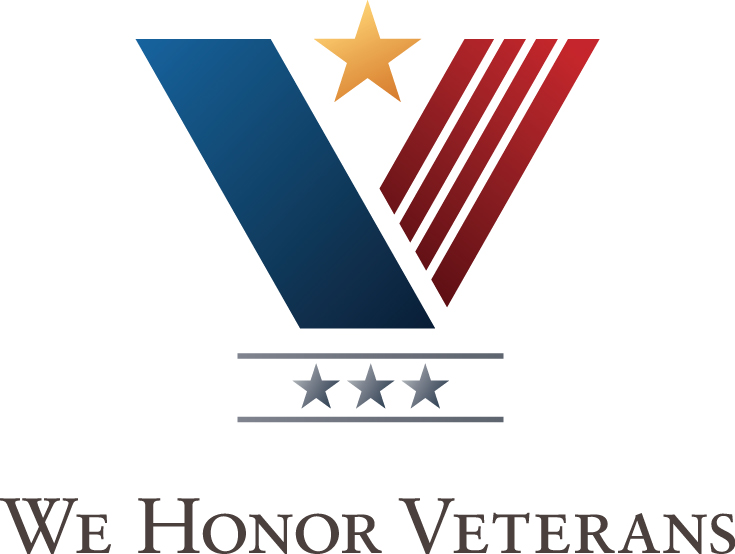
Hospice Care and the Unique Issues of Veterans
About a million and a half people are serving in the U.S. military right now, but there were more than 20 million U.S. veterans living here as of 2016, representing nearly 10 percent of the total adult population. These brave men and women have committed many years of their lives to protecting our country and helping others. However, those years of service certainly take a toll, resulting in unique physical, mental, emotional, and spiritual health issues that manifest themselves as those veterans approach the end of their lives. As we observe Veterans Day on Monday November 12, we take a look at hospice care and the health issues veterans face in San Francisco and elsewhere.
It’s become increasingly more evident that Americans age 65 and older — one of the largest portions of the country’s total population — have an even greater need for quality end-of-life care.
Physical Issues
It’s true that every veteran’s end-of-life care needs will vary, but generally, they suffer from a wide spectrum of physical challenges as a result of their service. These challenges stem from many things, from age and service location to the chemicals and other hazards they gained exposure to on the battlefield. Physical issues they may suffer from include:
- Chronic Pain: There’s no doubt that military service is physically demanding. By the time veterans reach their elder years, their long history of severe musculoskeletal pain in the back and joints starts to worsen. Studies show that those with a history of post-traumatic stress disorder (PTSD) or traumatic brain injury (TBI) more often report chronic pain conditions than those who don’t suffer from those conditions.
- Presumptive Diseases: According to the U.S. Department of Veterans Affairs, presumptive diseases are those associated with exposure to chemicals such as Agent Orange and other herbicides, which can result in anything from prostate and respiratory cancer to hyperthyroidism and Parkinson’s disease.
- Traumatic Brain Injuries: TBIs are alterations in the brain function caused by an external force, according to the Brain Injury Association of America. The general population may get these as a result of serious accidents such as falls, violent assaults, and car accidents. However, veterans are exposed to far more and varied chances to develop TBI on the battlefield due to military blasts, mines, grenades, mortars, bullets, and improvised explosive devices (IEDs).
Emotional and Psychosocial Issues
The physical demands on a veteran’s body are great; so, too, are the emotional and psychosocial effects, impacting their hearts, minds, and relationships. For many vets, the deepest and most painful scars they have endured are ones that can’t be seen. While in their end-of-life journey, those emotional and psychosocial issues often present the most difficult of challenges. The holistic care philosophy of hospice addresses those unique issues facing veterans, such as:
- Post-traumatic Stress Disorder: Known for short as PTSD, this anxiety disorder develops in individuals who have lived through a dangerous or traumatic event. Symptoms for veterans can include reliving events in the war they served in, feeling on-edge, avoiding situations that bring memories back of the event, and an increase in negativity or numbness toward themselves and other people.
- Depression and Suicide: According to the VA’s National Registry for Depression, 11 percent of veterans over the age of 65 are diagnosed with major depressive disorder, a rate more than twice that of the over-65 general population. The actual rate of depression in veterans is likely much higher but not all seek help or are diagnosed by their doctor. Depression can lead to suicide; sadly, 65 percent of all veterans who died by suicide were over the age of 50. Suicide doesn’t just touch the old. Between 18 and 22 American veterans commit suicide daily, with young veterans between the ages of 18 and 44 being the most at risk, says the National Institutes of Health.
- Survivor’s Guilt: This often forms after veterans feel they had no choice in taking drastic action to ensure their own survival. It can also happen after the death of friends and fellow service members.
Spiritual Issues
Terminally-ill veterans who are nearing the end of life often struggle with difficult spiritual questions. Those challenges are often times worse for those who engaged in combat with enemy forces that demanded the use of violence acts beyond their control. Not only did they have to make difficult sacrifices on the battlefield, they also had to take lives. These internal struggles can lead to:
- Anger and Frustration with Life and God: They may question the purpose of life, God and their very existence.
- Spiritual Isolation: Many veterans fall away from the religious faith as they get older. Now, as they face death, they worry that God or another higher power will not offer eternal salvation.
- Fear and Anxiety About Death: Veterans are worried about being accepted into the afterlife, especially if they have taken lives in combat. And because many American vets came from traditional Christian backgrounds, they wonder if they can be forgiven by God before they pass.
Contact Pathways Home Health and Hospice
Pathways Home Health and Hospice can assure you that no patient ever journeys through hospice alone. We have many resources to help your loved one make peace with himself or herself, or get the physical relief they need from pain. For emotional, psychosocial and spiritual concerns, we offer spiritual counseling and guidance as well as compassionate therapists who can work with your loved one as they navigate hospice. For physical concerns, we offer anything from pain medication to physical therapy to ease their chronic pain. Contact us to learn more today.

